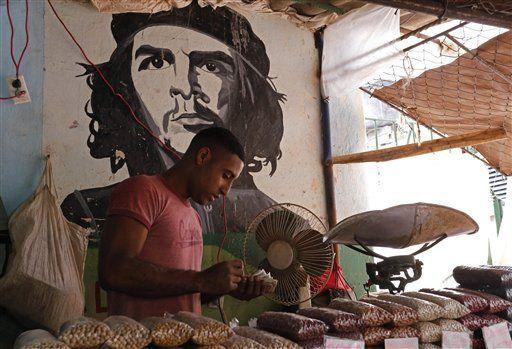More than 50 years ago, my uncle was arrested by the Cuban government for handing out church pamphlets encouraging citizens to visit the chapel. He was just a kid, but a simple act of democracy still warranted arrest in his home country.
He was one of the lucky ones.
My father and most of his family fled Cuba in 1962, avoiding poverty, imprisonment or possible execution under Fidel Castro’s rule. They each took what they could fit in one bag, and most of them have never returned to the Communist state.
A month ago, friends began congratulating me on news of Obama’s new U.S.-Cuba policies, convinced I would be overjoyed. But like most Cuban-Americans, I’m aware it’s still far from the end.
It may not even be the beginning.
Opening talks with Cuba, reopening an embassy in Havana and beginning the process of normalization is all smart, but Raul Castro, Fidel’s brother, is still in charge. Making a change like this is a gamble for the Cuban dictator, so there has to be something he can gain.
Raul’s ultimate goal is probably tourism, something the new policy does not completely allow but has made more lenient. There’s money to be made in Americans visiting the island’s many beaches and engulfing themselves in “Cuban culture”, and Raul knows it. It’s money that will pass over the 11 million citizens and go directly to the government.
Cuba is not the new toy U.S. citizens can use for spring breaks and honeymoons in a few years. It’s a Communist state that will pamper its tourists without revealing the constant fear of its citizens.
Hotel, cruise line and airline companies probably are most excited for the potential tourism. For them, Cuba is the lost jewel of the Caribbean, a pile of money suddenly within their grasps for the first time.
If you don’t think those companies will lobby politicians for even more lenient rules on tourism, you don’t know the first thing about U.S. politics.
For every Cuban-American who fled because they were wealthy, there is one who fled because he or she believed in freedom. Unfortunately, the new policy mostly attacks the economic side of relations, not the embargo on democracy.
An optimistic historical comparison would be Mikhail Gorbachev’s actions in the late ’80s while leader of the Soviet Union. His effort to decrease tensions between the Soviets and the West contributed to the dissolution of the country in 1991.
But Cuban-Americans have seen attempts to change relations in Cuba before, and nothing has come of it. Most will be patiently waiting to see how this latest development plays out, but this is no time to celebrate.
The more likely and more recent historical example is the Arab Spring, which brought radical governmental change but had its share of negative outcomes too. If something similar happens in Cuba, it will bring as many detractors of aiding the country as supporters.
Meanwhile, Obama is getting enough heat for sending troops back to the Middle East. It seems unlikely that he or a future president will act if a revolution begins in Cuba.
What’s most frightening is what may happen in the 2016 presidential elections, when “the Cuba issue” may be used as a tool to grab votes, especially in a swing state like Florida. U.S. politicians have used Cuba as a gambling chip rather than a country for more than a century, and it’s a little sickening to watch it happen again.
I can’t fathom the plight my father experienced leaving his home, moving to various places in the Caribbean and U.S. and never returning to Havana. What I can comprehend is the disappointment he and others will feel if all the recent decisions turn out to be mere political power plays.
It’s been more than 50 years since my uncle attempted to hand out those pamphlets. Those years haven’t destroyed hopes of returning; they’ve merely clouded the way to a solution.
Tommy Romanach is a 22-year-old mass communication senior from Dallas, Texas. You can reach him on Twitter @troman_TDR.
Opinion: Many issues make solution to US-Cuba situation unclear
January 20, 2015

A worker who sells beans counts money at a state-run market stall decorated with a mural of Cuban revolutionary hero Ernesto “Che” Guevara in Havana, Cuba, Saturday, Dec. 20, 2014. After the surprise announcement on Wednesday of the restoration of diplomatic ties between Cuba and the U.S., many Cubans expressed hope that it will mean greater access to jobs and the comforts taken for granted elsewhere, and lift their struggling economy. However others feared a cultural onslaught, or that crime and drugs, both rare in Cuba, will become common along with visitors from the U.S. (AP Photo/Desmond Boylan)
More to Discover







